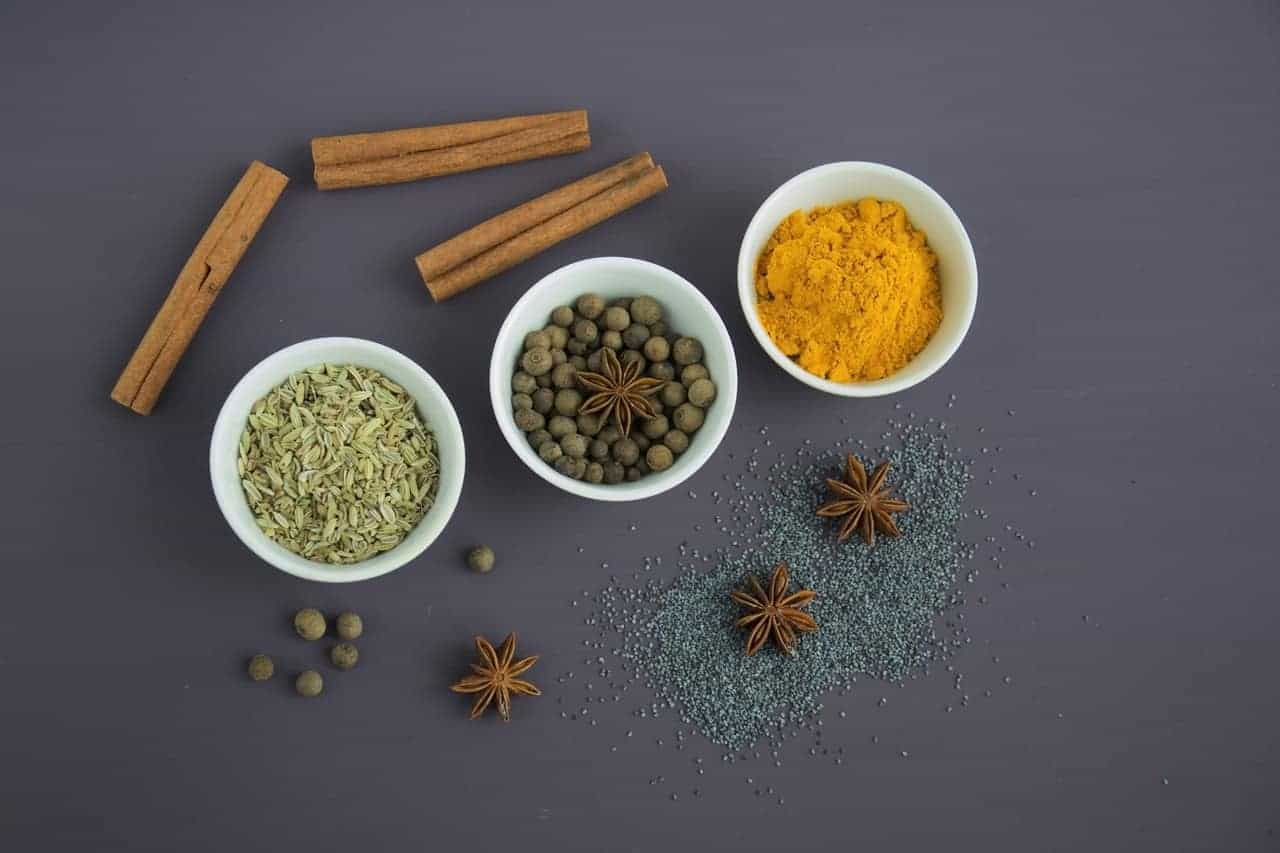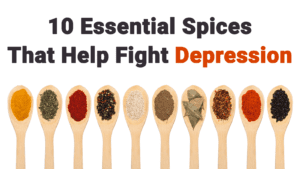The health benefits and healing powers of herbs and spices have been known since ancient times. Various herbs and spices have been used in religious rituals and medicines around the world for centuries. Although today we mostly use herbs and spices for cooking, research shows these long-ago civilizations were on to something.
Monica Auslander Moreno, dietician for the Miami Marlins and a professor at the University of Miami says, “Herbs and spices make food tastier while boosting your health.” She encourages her clients to use herbs and spices for cooking regularly. All herbs and spices are parts of plants and are loaded with healthy compounds found to fight illness and disease. All are rich in phytochemicals to combat inflammation and damage to the body. Try growing your own fresh herbs and spices for cooking to make food tastier and boost your health at the same time. With practice, you’ll find the right combinations to use in the same dish.
Here are the healthiest spices for cooking:

1. Cumin
If you want to lose weight, incorporate cumin into your recipes. It’s the main ingredient in Indian cuisine. A study using overweight women as subjects found that about a teaspoon a day together with a low-calorie diet resulted in more weight loss and body fat reduction than those on similar diets without it. Cumin is also a good source of iron.
2. Turmeric
If you suffer from chronic pain, reach for the yellow spice turmeric. It’s a good source of curcumin, an antioxidant known to ease inflammation. Curcumin may also reduce the chance of a heart attack and prevent or slow Alzheimer’s disease. Turmeric is one of the best spices for cooking because of its many physical and mental health benefits.
3. Cardamom
Cardamon may sound uncommon, but it’s not. It’s a zesty spice used in pumpkin spice mixes. It’s especially high in magnesium and zinc and can soothe an upset stomach. Even more impressive, cardamom has been found in lab studies to fight inflammation, help prevent cancer, and lower blood pressure.
4. Cinnamon
Cinnamon is recognized as one of the most valuable spices for cooking to control blood sugar. The American Heart Association says most Americans eat way too much sugar. A sugary diet can lead to several serious conditions like obesity, diabetes, and heart disease. They recommend using cinnamon for flavor rather than sugar.
5. Cocoa
Some may think cocoa to be unhealthy since it’s in chocolate candy and other sweets. It’s actually a spice with health perks associated with flavonoids, which are antioxidants proven to boost heart health. They work by lowering blood pressure and cholesterol.
6. Chili Peppers
Most people love the kick that fresh, powdered or dried chili peppers add to food. One of the best spices for cooking ethnic foods, chili pepper can boost your metabolism and help you lose weight.
7. Garlic
Garlic contains a powerful compound called allicin which lab studies show may provide a host of health benefits. It can help stop cancer cells from growing, regulate cholesterol and blood pressure, and lower your chances of getting heart disease. Be sure to chop or crush the clove to release the allicin.
8. Ginger
Ginger is a tasty spice often used along with cinnamon as spices for cooking around the fall and winter holidays, but it’s also one of the “pain spices.” Along with black pepper, cayenne, and garlic, it’s used to relieve pain caused by inflammation due to arthritis.
9. Rosemary
Rosemary is a fragrant herb rich in antioxidants that boosts brain activity and prevents cell damage. A study found that people who merely sniffed rosemary’s fragrant aroma did better on memory tests. Older people with cognitive decline will benefit by using rosemary liberally in cooking.
10. Cayenne Pepper
If you want to tame your appetite and boost metabolism, sprinkle cayenne on your prepared dishes. It adds to the flavor and works the same as chili peppers to bump up the body’s metabolic rate. People who participated in studies reported feeling less hungry after eating food spiced with cayenne pepper.
11. Peppermint
The minty aroma of peppermint tea can lift your mood and sharpen your thinking. Peppermint tea can also soothe an upset stomach. Many studies show peppermint oil useful in easing the pain of irritable bowel syndrome. It seems to reduce bloating and relax muscles in the colon.
12. Oregano
The tiny leaves in oregano are high in nutrients like vitamins K and E, iron, calcium, manganese and fiber. Oregano is bursting with all the antioxidants that fight things like heart disease, stroke, and cancer.
Capsules or the Real Thing?
Many herbs and spices are sold as supplements in capsule and oil extract form. Doctor Adrienne Youdim, associate clinical professor of medicine at the UCLA David Geffen School of Medicine, says using herbs and spices directly in food improves the flavor, helping us to cut down on fats and salt. One downside to using supplements is there aren’t many government regulations on them. Youdin says it’s best to eat the herb or spice instead of taking it in pill form, and anyone would agree that it’s tastier when fresh.


















